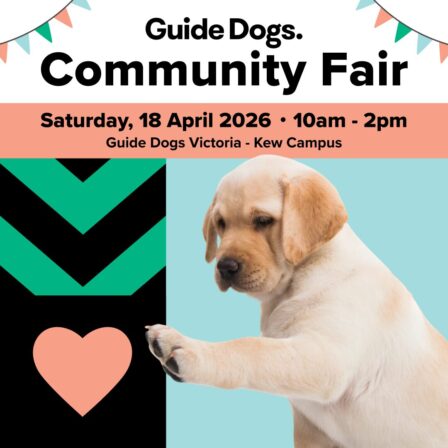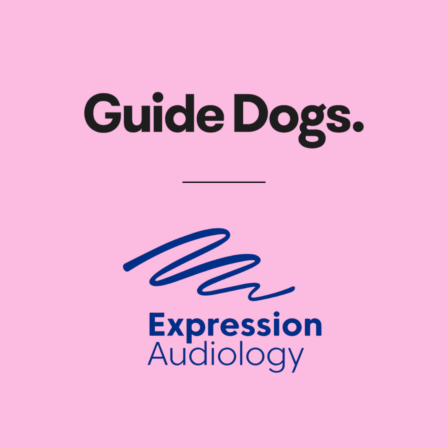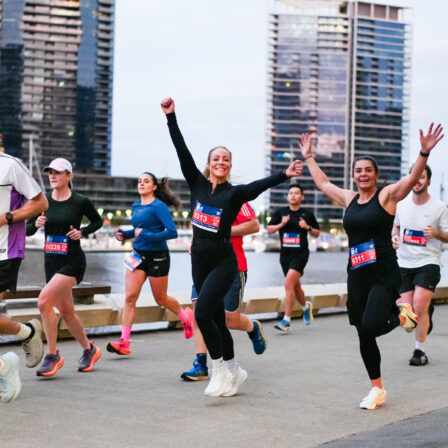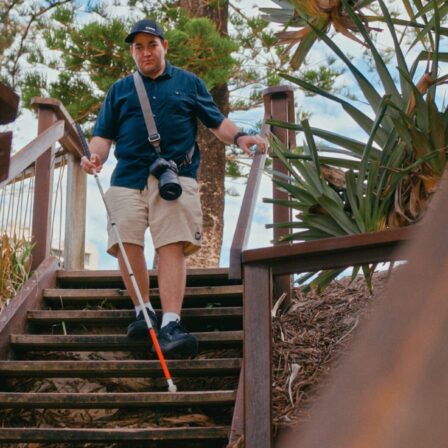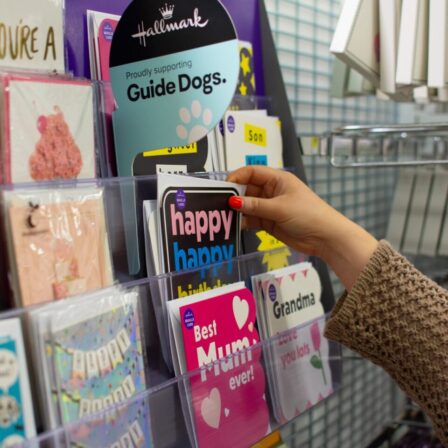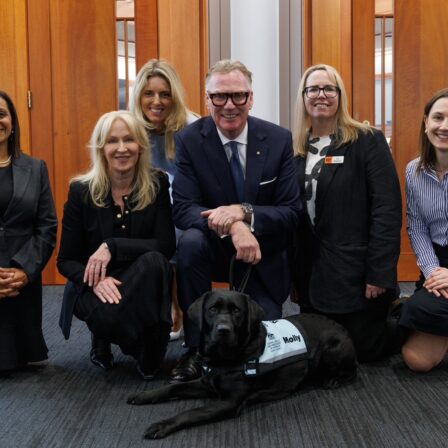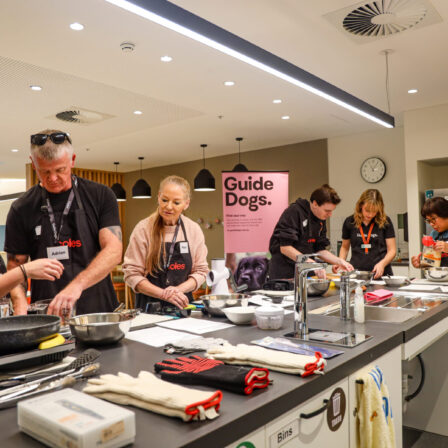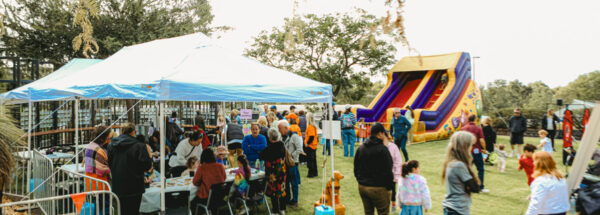News
Early Puppy Development Program
Raising tomorrow’s Guide Dogs
At Guide Dogs Victoria, our Early Puppy Development Program plays a vital role in shaping puppies into future Guide Dogs. Starting in the Edwards Nursery at our Kew Campus, each puppy’s journey begins with crucial early experiences that foster their emotional, physical, and social growth.
The enrichment effect
Why is enrichment so important? Research shows that positive stimulation during this period enhances brain development, leading to larger brain size, increased neural connections, and improved learning, memory, and emotional stability – traits essential for a working Guide Dog.
Our program focuses on four key elements to support optimal development:
- Enriched environments: Toys, varied surfaces, sounds, and social interactions stimulate cognitive growth.
- Exercise: Opportunities for physical activity and outdoor play build strength and agility.
- Problem-solving: Challenging tasks promote critical thinking and learning.
- Rest: Adequate sleep helps consolidate memories and supports overall health.
These carefully balanced elements ensure each puppy receives the right mix of stimulation, exercise, challenges, and rest, setting them up for success as they move towards their role as a Guide Dog.
Early stages of puppy development
Our Early Puppy Development Program begins just days after birth, focusing on key stages of growth to prepare puppies for their future roles.
Birth to two weeks of age (neonatal stage)
During this stage, puppies rely on their sense of touch, taste, and smell. They cannot walk, see, hear, or regulate their body temperature, depending entirely on their mother. Staff gently handle the puppies daily, providing massage and introducing different textures to help them become familiar with touch. Collars are also introduced.
Two to four weeks of age (transitional stage)
As the puppies start to open their eyes and ears, they begin to explore their world. We introduce visual cues and expose them to a variety of sounds from the TV and radio including traffic, crowds and kids playing, household noises like vacuuming, and animal sounds, helping puppies adjust to everyday sounds they will encounter later in life.
With the arrival of teeth, puppies start enjoying solid kibble from our food partner, Black Hawk. Now walking and exploring, playing with their littermates, and developing coordination, early toilet training begins as they gain mobility. Toys are introduced to encourage play, build strength and coordination, laying the groundwork for the physical, emotional, and social development needed to become a successful Guide Dog.
Preparing to become future Guide Dog heroes
Three to 14 weeks of age (socialisation period)
Pups begin actively seeking enrichment opportunities, developing essential skills and key relationships with people, animals, and their environment. They continue building on the sights, sounds, and textures they were exposed to earlier, with new environments, people, and situations. Volunteers expand their social network, creating new interactions while staff guide them through structured enrichment activities.
Socialising with mum and littermates teaches key dog-to-dog skills, and increased one-on-one time with handlers strengthens human bonds. Puppies also begin learning basic skills through reward-based training, such as walking on a lead, sitting for meals, and toilet training before meeting their Puppy Raisers.
A highlight of this period is the puppy enrichment courtyard, where puppies build confidence outside of the nursery, exploring different tactile surfaces like rubber matting, cobblestones, wood and artificial grass to build coordination and strength. A ball pit offers fun challenges, helping puppies adjust to sounds, unsteady footing and objects on their bodies.
Handlers encourage exploration, guiding puppies through new experiences. Massages build positive associations with handling, essential for future vet visits and grooming. Basic training – such as ‘sit’, ‘down’, and recall – is introduced through reward-based methods. Puppies also engage in licking and chewing activities – using mats and treat-filled Kong toys – to relax after their sessions, followed by a nap to process all they’ve learned.
Did you know you can join us on-campus to watch these sessions in action? Ask us about upcoming viewing sessions and watch our puppies on their journey to becoming future Guide Dogs!
